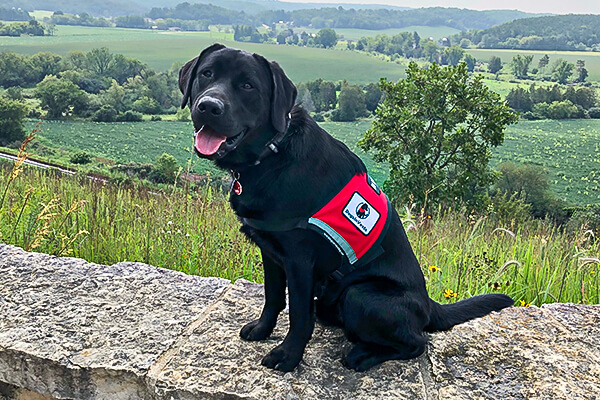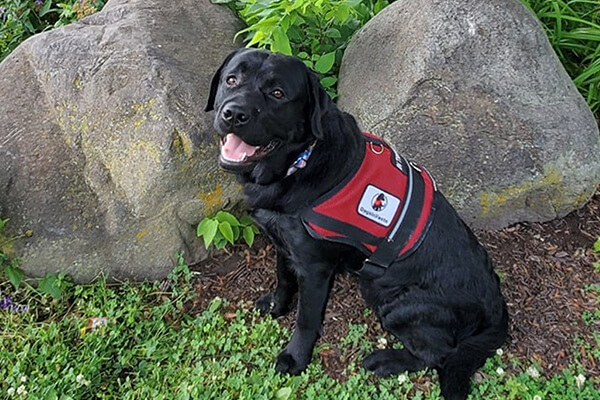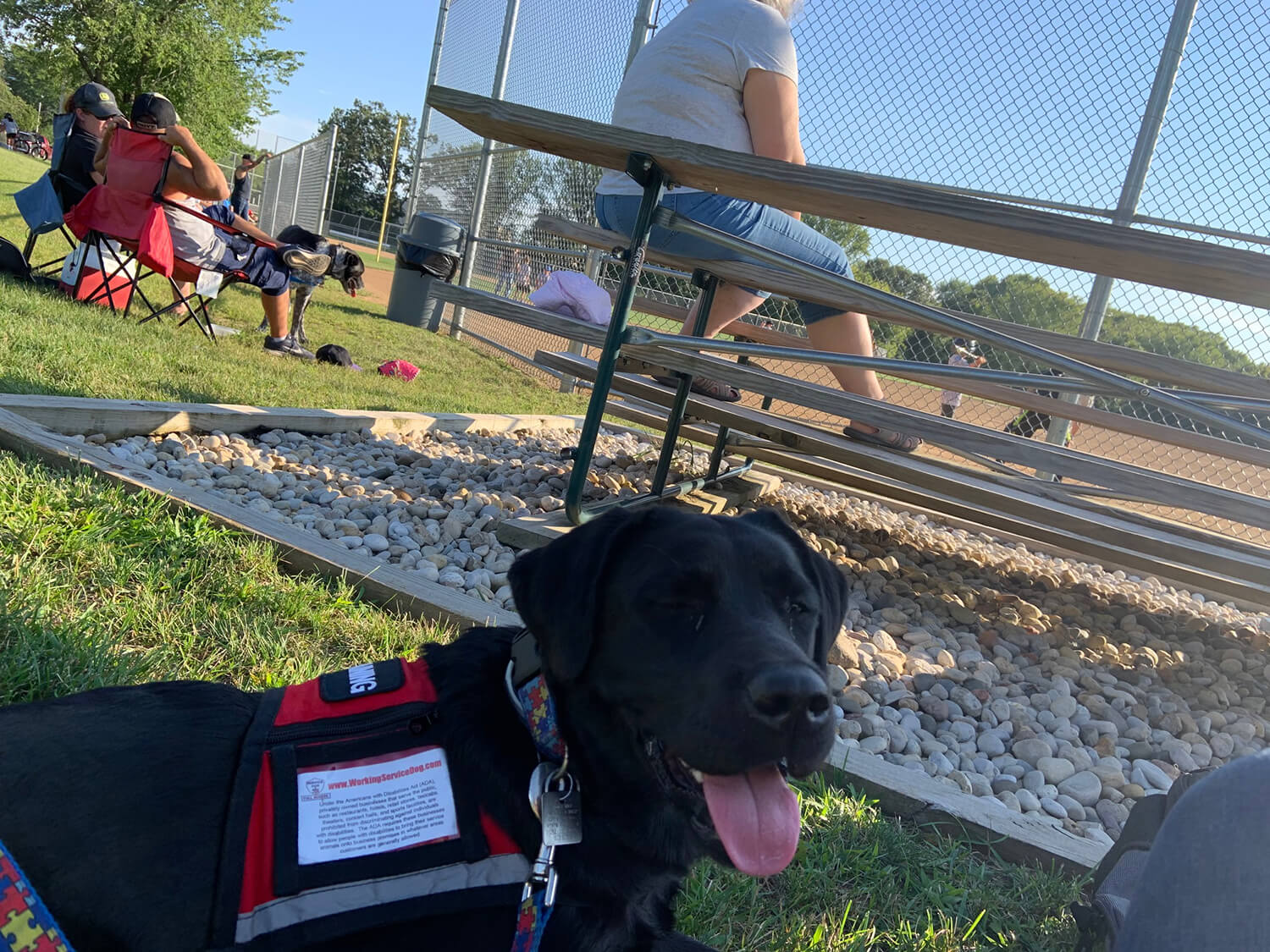Benefits of Psychiatric Service Dogs for Autism
DogsInVests is a nonprofit organization providing psychiatric service dogs for children with autism in Wisconsin. Psychiatric service dogs provide invaluable benefits for children with autism, enhancing their daily lives and promoting their well-being. At the end of our matching process, children and their psychiatric dog evolve from strangers to training partners, to trusted companions.
Understanding Autism
Autism, also known as Autism Spectrum Disorder (ASD), is a neurodevelopmental disorder affecting communication, social interaction and behavior. It is characterized by a range of challenges, including difficulties with social skills, repetitive behaviors and a restricted range of interests and activities.
Autism is a spectrum disorder, meaning there are various degrees in which an individual is affected. Specifically, children with autism are faced with the following:
- Social Integration Challenges: Children with autism often struggle with making eye contact, interpreting facial expressions and body language and understanding social cues. Building and maintaining friendships can be challenging.
- Communication Challenges: Many children with autism experience delays or difficulties in speech and language development. Some have trouble initiating and sustaining conversations, understanding figurative language and expressing their own thoughts and emotions.
- Repetitive Behaviors and Restricted Interests: Children with autism often engage in repetitive behaviors, such as hand-flapping, rocking or repetitive vocalizations. Some develop intense interests in specific topics or objects and may have difficulty shifting their focus to other activities.
- Sensory Sensitivities: Sensory sensitivities are common in children with autism. Some children are hypersensitive or hyposensitive to sensory stimuli such as lights, sounds, textures, tastes and smells. This leads to discomfort or distress in certain environments.
- Difficulty with Transitions: Children with autism may struggle with changes in routines and transitions from one activity to another. Some become anxious or display disruptive behaviors when faced with unexpected or unfamiliar situations.
- Executive Functioning Challenges: Executive functioning refers to a set of cognitive processes responsible for planning, organizing and self-regulation. Some children have difficulties with these skills, which impacts their ability to manage time, set goals and complete tasks independently.
- Emotional Regulation: Children with autism often have difficulty understanding and regulating their emotions. Meltdowns or outbursts then occur when overwhelmed or frustrated.




